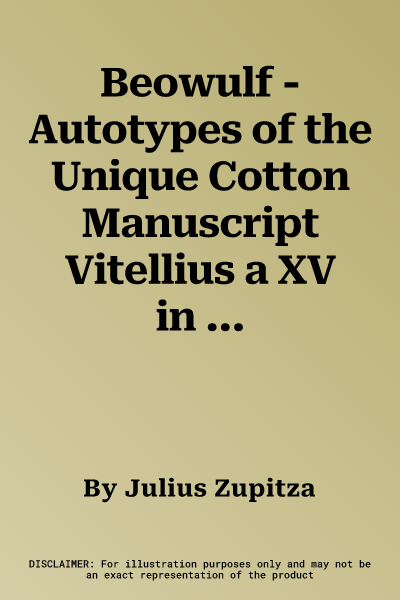PRELIMINARY NOTICE. MR. FURNIVALL, at p. 12 of the Eleventh Report of
the Com mittee of the Early English Text Society September, 1879, says
as follows On Prof. Skeats receiving, to the Committees great pleasure,
his well-earned and well-deserved reward of the Anglo- Saxon
Professorship at Cambridge, he proposed that the Society should autotype
the unique MS. of the great Anglo-Saxon epic of Beowulf. The Committee,
relying on finding a translator and editor of the- text, adopted Prof.
Skeats suggestion. The MS. was photographed by Mr. Praetorius he has
delivered some of the autotypes, and undertakes to hand in the whole
early next year. Part I. of the book is now in hand, and will be issued
for 1880 in 1881. Before that Report was printed, I had promised Mr.
Furnivall to act as editor. I collated the autotypes in the August and
September of 1880, with the MS. as well as with the two transcripts of
it, made nearly a hundred years ago the one by, the other for, the first
editor of the poem, G. J. Thorkelin which now belong to the Large Royal
Library at Copenhagen, but which, on our directors application, were
kindly sent to the British Museum. After my return to Germany, however,
having to perform the duties of Dean to the Philosophical Faculty of the
University of Berlin for 1880- 1881, I was unable to go on with the
Beoufrilf before the long vacation of 1881. My transliteration of the
MS. was in type by the end of August, 1882, and I read the proof-sheets
of it with the MS. in the earlier part of the following month. The
transliteration contains more than can be read in the Facsimile or even
in the MS., inasmuch as it has been my endeavour to give the text as far
as possible in that condition in which it stood in the MS. a century
ago. The MS. Cotton MSS. Vitellius A. xv. did not suffer so much from
the fire of 1731 itself as from its consequences, which would, without
doubt, have been avoided if the MS. had been at once rebound as
carefully as it has been rebound in our days. Even when Thorkelin used
it, the edges of a few pages only had crumbled off. But much morewas
gone by Kembles time, and many letters and words which Kemble still saw
are now no longer in existence. Further losses have been put a stop to
by the new binding but, admirably as this was done, the binder could not
help covering some letters or portions of letters in every back page
with the edge of the paper which now surrounds every parchment leaf. I
grudged no pains in trying to decipher as much of what is covered as
possible. When, in my notes, I simply state that something is covered, I
always mean to say that, by holding the leaf to the light, I was able to
read it nevertheless. In case I could not make out what is covered
distinctly, I always add a remark to that effect. Both in the front
pages and in the back pages transparent paper was employed by the
binder, which, although it does not prevent the reader of the MS...


